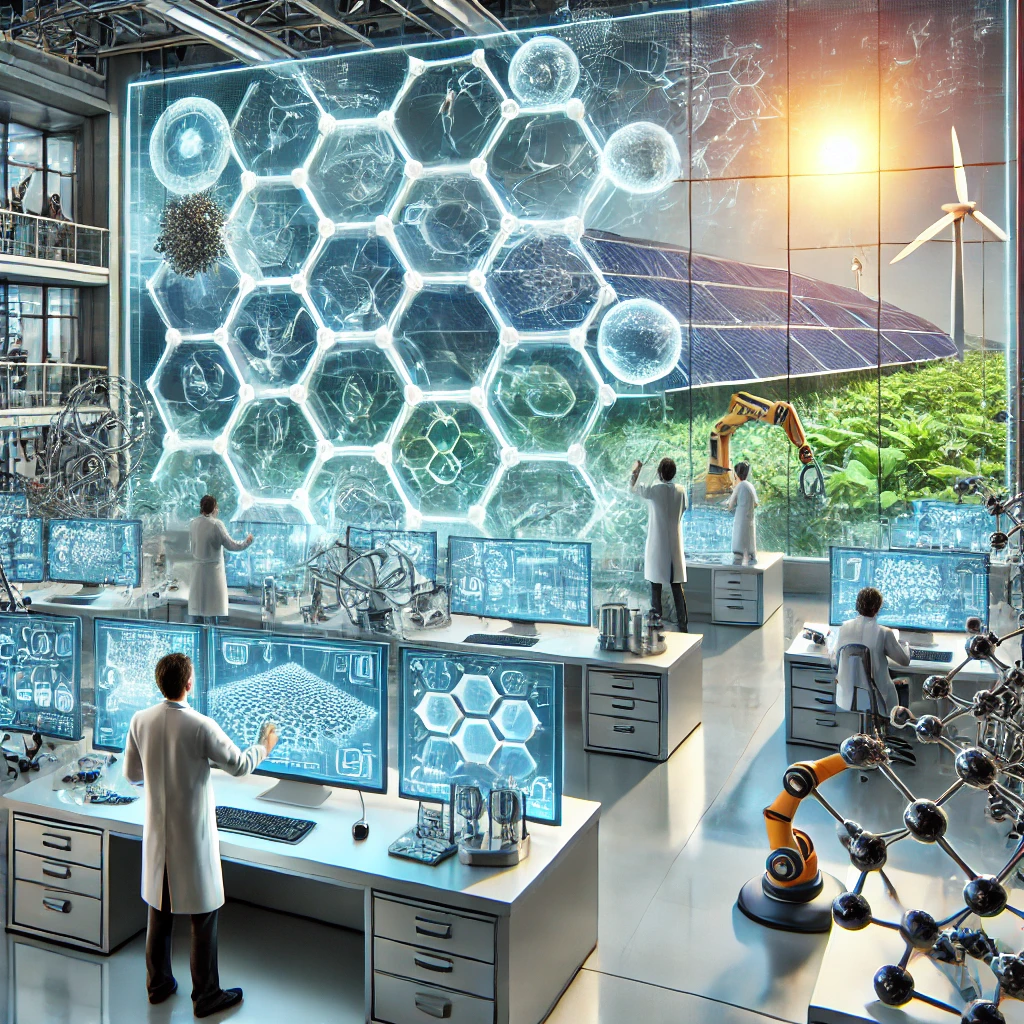The field of engineering is constantly evolving, with new technologies emerging that have the potential to transform industries and society. As we step into 2024, several key technologies are expected to play a significant role in shaping the future of engineering. Whether you’re a student, a professional engineer, or simply an enthusiast, staying informed about these emerging technologies is crucial. Here’s what you need to know about the top engineering innovations in 2024.
1. Artificial Intelligence and Machine Learning
Emerging Technologies like Artificial Intelligence (AI) and Machine Learning (ML) have been revolutionizing various sectors, and their impact on engineering is profound. In 2024, we expect AI and ML to further enhance processes in areas such as manufacturing, design, and infrastructure management. Engineers are using AI for predictive maintenance, optimizing production lines, and even in the development of smart cities. Machine learning algorithms can analyze vast amounts of data to provide insights that were previously impossible, leading to more efficient and innovative solutions.

2. 5G and Beyond
The rollout of 5G technology which is more like an emerging technologies is set to reach new heights in 2024, bringing with it unprecedented speeds and connectivity. For engineers, this means the ability to design and deploy more sophisticated IoT (Internet of Things) systems, enabling real-time data collection and analysis across various applications, from autonomous vehicles to smart factories. The low latency and high bandwidth of 5G will allow engineers to create systems that are more responsive and capable of handling complex tasks.
3. Sustainable and Green Engineering
Sustainability is no longer just a buzzword; it’s a necessity. In 2024, green engineering practices are expected to dominate the industry. Emerging technologies Engineers are increasingly focusing on designing systems and products that minimize environmental impact. This includes the use of renewable energy sources, sustainable materials, and energy-efficient technologies. Innovations such as carbon capture and storage, biodegradable materials, and energy-efficient buildings are some areas where engineers are making strides towards a more sustainable future.

4. Advanced Materials
The emerging technologies development of advanced materials is opening new possibilities in engineering. In 2024, we expect materials such as graphene, nanomaterials, and smart materials to become more prevalent. These materials offer exceptional properties, such as increased strength, lighter weight, and the ability to change properties in response to environmental stimuli. Engineers are exploring their applications in everything from aerospace engineering to medical devices, leading to innovations that were once thought to be science fiction.
5. Quantum Computing
Quantum computing, although still in its early stages, is poised to revolutionize fields that require complex computations, such as cryptography, material science, and drug discovery. By 2024, engineers will likely begin to see more practical applications of quantum computing, especially in solving problems that are currently intractable with classical computers. As this technology advances, it will open up new avenues for innovation and problem-solving in engineering.
6. Autonomous Systems and Robotics

Autonomous systems and robotics are rapidly advancing, which is also considered as emerging technologies with applications ranging from manufacturing to healthcare. In 2024, we anticipate significant developments in autonomous vehicles, drones, and robotic systems. These technologies are not only making processes more efficient but also expanding the possibilities of what can be automated. Engineers are at the forefront of designing these systems, ensuring they are safe, reliable, and capable of operating in complex environments.
7. Biotechnology and Bioengineering
Biotechnology and bioengineering are becoming increasingly integrated with traditional engineering disciplines. In 2024, the convergence of biology and engineering will lead to advancements in areas such as synthetic biology, tissue engineering, and biomanufacturing. Emerging Technologies Engineers are working on creating biological systems and materials that can be used in everything from medical treatments to sustainable production processes. This field holds the promise of groundbreaking innovations that could change the way we live and work.

8. Augmented and Virtual Reality
Augmented Reality (AR) and Virtual Reality (VR) are set to transform engineering design and training processes. In 2024, these technologies will become more immersive and integrated into the engineering workflow. Emerging Technologies engineers can use AR and VR for virtual prototyping, immersive training experiences, and remote collaboration, enabling them to visualize complex systems in ways that were not possible before.
9.Enhanced Visualization and Simulation
- AR and VR- Emerging technologies allow engineers to visualize and simulate complex designs and systems in a highly detailed and interactive environment. This capability enables engineers to identify potential issues, optimize designs, and experiment with different scenarios before any physical prototypes are built. By immersing themselves in a virtual model, engineers can better understand spatial relationships and the overall design, leading to more informed decision-making.
10. Digital Twins
- Digital twin technology involves creating a virtual replica of a physical asset, system, or process. In 2024, digital twins are expected to become more advanced and widely used across industries. Engineers can use digital twins to monitor, analyze, and optimize real-world systems in real-time, leading to improved performance and reduced downtime. This technology is particularly valuable in sectors such as manufacturing, energy, and infrastructure, where complex systems require continuous monitoring and optimization.
11. Edge Computing
- Edge computing is gaining traction as a way to process data closer to where it is generated, rather than relying solely on centralized cloud servers. In 2024, the adoption of edge computing is expected to increase, particularly in applications that require real-time processing, such as autonomous vehicles, industrial automation, and smart cities. For engineers, this means designing systems that are more efficient, with lower latency and improved data security.
12. Additive Manufacturing (3D Printing)
- Additive manufacturing, or 3D printing, continues to evolve, offering new possibilities in prototyping, production, and customization. In 2024, advancements in 3D printing technology are expected to enable the production of more complex and durable components, with applications spanning aerospace, automotive, healthcare, and construction. Engineers are increasingly using 3D printing for rapid prototyping, reducing time to market, and creating bespoke products tailored to specific needs.
13. Cybersecurity in Engineering
- As engineering systems become more connected and reliant on digital technologies, cybersecurity is becoming a critical concern. In 2024, there will be a greater emphasis on integrating cybersecurity measures into the engineering design process, particularly in sectors like critical infrastructure, transportation, and manufacturing. Engineers will need to develop systems that are resilient to cyber threats, ensuring the safety and reliability of essential services.
14. Human-Computer Interaction (HCI)
- The field of Human-Computer Interaction (HCI) is evolving, with new interfaces and interaction methods being developed to enhance how engineers and users interact with technology. In 2024, we expect to see more intuitive and user-friendly interfaces, including gesture control, voice recognition, and brain-computer interfaces. These advancements will enable more efficient and effective control of complex systems, making technology more accessible and easier to use.
15. Energy Storage and Battery Technology
- With the growing demand for renewable energy and electric vehicles, advancements in energy storage and battery technology are crucial. In 2024, we anticipate significant progress in battery efficiency, capacity, and charging speed, as well as the development of new energy storage solutions. Engineers will be at the forefront of designing these systems, which are essential for supporting the transition to a more sustainable energy future.
16. Improved Collaboration Across Teams
- AR and VR are breaking down geographical barriers by enabling remote collaboration in real-time. Engineers from different parts of the world can work together in a shared virtual space, discussing designs, making modifications, and solving problems as if they were in the same room. This collaborative approach reduces the time and costs associated with travel and allows for a more dynamic exchange of ideas, accelerating the design process.
17. Augmented Maintenance and Repair Operations
- AR is increasingly an emerging technologies being used for maintenance and repair tasks in engineering. By overlaying digital information onto physical objects, AR provides engineers and technicians with real-time data, instructions, and visual guides directly in their field of view. This hands-free approach improves accuracy and efficiency, reduces downtime, and ensures that even complex systems can be serviced with minimal errors.
18. Cost-Efficient Training and Skill Development
- VR offers a safe and cost-effective platform for training engineers and technicians in handling complex machinery, hazardous environments, or new processes. Through immersive simulations, trainees can gain hands-on experience without the risk or expense of working with actual equipment. This approach allows for repeated practice, better retention of skills, and the ability to train large groups simultaneously, all while minimizing the need for physical resources.
Conclusion
The year 2024 promises to be an exciting time for engineering, with a host of emerging technologies set to reshape the industry. Staying ahead of these trends is essential for anyone in the engineering field, as they offer new opportunities for innovation, efficiency, and problem-solving. By embracing these technologies, engineers can continue to drive progress and make a positive impact on the world.